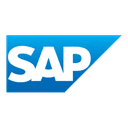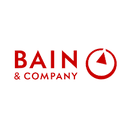Portfolio and Project Evaluation
- Assessing complexity, innovation, and business impact of past projects.
Partner with experienced data scientists, machine learning engineers, statisticians, and analytics specialists who deliver measurable business impact. Leading enterprises and innovative startups hire top data scientists from us to:
This global adoption proves why businesses choose to hire top Data Scientists for scalable, insightful, and future-ready solutions.

Highlight: Meta has established the 'TBD Lab,' a specialized AI research unit attracting top-tier data scientists with lucrative compensation packages.
Impact: Focuses on advanced AI and machine learning research to enhance user experiences across its platforms.
Notable Use: Development of sophisticated recommendation systems and content moderation tools.

Highlight: Databricks has surpassed a $4 billion annual revenue run rate, driven by its AI product line.
Impact: Provides a unified analytics platform that accelerates innovation by unifying data science, engineering, and business.
Notable Use: Utilized by major clients like Honda and Princeton University for large-scale data processing and analysis.

Highlight: Palantir's Foundry platform powers AI initiatives for both commercial and government applications.
Impact: Known for delivering real value with AI solutions, including cost savings and research acceleration.
Notable Use: Implemented in organizations like American Airlines and the U.S. State Department.

Highlight: Eli Lilly launched TuneLab, an AI and machine learning platform aimed at enhancing drug discovery efforts.
Impact: Democratizes access to advanced drug discovery models, reducing reliance on animal testing.
Notable Use: Collaborations with biotech companies like Circle Pharma and insitro for cancer therapies.

Highlight: Citi appointed Shobhit Varshney, a former IBM executive, as its new Head of AI to lead and accelerate its artificial intelligence strategy.
Impact: Integrates AI tools across its operations to enhance customer service and operational efficiency.
Notable Use: Deployment of AI tools like Stylus and Assist to 175,000 employees globally.

Highlight: Amazon offers data scientists opportunities to work on challenging projects at a large scale with real-life data.
Impact: Focuses on turning data into actionable insights to improve customer experiences.
Notable Use: Development of machine learning solutions to adapt to customer demands.

Highlight: Google AI continues to be a leader in artificial intelligence research and application.
Impact: Develops advanced AI models and tools that power various Google products and services.
Notable Use: Implementation of AI in search algorithms, natural language processing, and image recognition.

Highlight: Apple invests heavily in AI and machine learning to enhance its product offerings.
Impact: Focuses on integrating AI into hardware and software to improve user experiences.
Notable Use: Development of features like Siri and advanced camera functionalities.

Highlight: Microsoft's Azure AI platform provides a comprehensive suite of AI services.
Impact: Empowers businesses to build and deploy AI models at scale.
Notable Use: Integration of AI into Microsoft 365 applications and cloud services.

Highlight: Netflix utilizes data science to personalize content recommendations for its users.
Impact: Enhances user engagement and satisfaction through tailored viewing experiences.
Notable Use: Development of recommendation algorithms and content optimization strategies.

Highlight: Spotify employs data science to analyze user listening habits and preferences.
Impact: Improves music recommendations and playlist curation.
Notable Use: Implementation of machine learning models for personalized music discovery.

Highlight: Uber leverages data science to optimize ride-sharing and delivery services.
Impact: Enhances operational efficiency and customer satisfaction.
Notable Use: Development of algorithms for dynamic pricing and route optimization.

Highlight: Airbnb uses data science to match travelers with suitable accommodations.
Impact: Improves booking experiences and host-guest interactions.
Notable Use: Implementation of machine learning models for personalized search results.

Highlight: Twitter applies data science to analyze user interactions and content trends.
Impact: Enhances content delivery and user engagement.
Notable Use: Development of algorithms for tweet recommendations and trending topics.

Highlight: Salesforce integrates AI into its customer relationship management (CRM) platform.
Impact: Provides businesses with predictive analytics and automation tools.
Notable Use: Implementation of Einstein AI for sales and service optimization.

Highlight: IBM's Watson platform offers AI and data science solutions for enterprises.
Impact: Assists businesses in data analysis and decision-making processes.
Notable Use: Deployment of AI models in healthcare, finance, and customer service sectors.

Highlight: Oracle provides data science tools through its cloud infrastructure.
Impact: Enables businesses to build and deploy AI models efficiently.
Notable Use: Integration of machine learning capabilities into Oracle Cloud applications.

Highlight: SAP incorporates AI into its enterprise resource planning (ERP) solutions.
Impact: Enhances business processes and decision-making through data-driven insights.
Notable Use: Development of intelligent ERP systems with embedded analytics.

Highlight: Accenture offers data science and AI consulting services to clients worldwide.
Impact: Assists organizations in adopting AI technologies and transforming their operations.
Notable Use: Implementation of AI solutions across various industries, including healthcare and finance.

Highlight: Bain & Company provides advanced analytics and data science expertise to clients.
Impact: Helps businesses leverage data for strategic decision-making and performance improvement.
Notable Use: Application of data science techniques in market analysis and operational optimization.
Discover the key advantages that make Data Science the discipline of choice for enterprise innovation.
Elite data scientists transform raw data into actionable insights, enabling organizations to make faster, smarter, and more strategic business decisions.
Advanced analytics and machine learning models uncover patterns, optimize operations, and drive product and service innovation.
Modern data pipelines, cloud-based analytics platforms, and AI tools allow companies to scale insights across global operations efficiently.
Data science teams collaborate seamlessly with engineering, marketing, finance, and product teams, ensuring insights are integrated across all business functions.
Top companies utilize specialized AI research units and unified analytics platforms to drive innovation and enhance user experiences at a global scale.

Meta (Facebook)

Databricks

Palantir Technologies

Eli Lilly
Data science has rapidly evolved from a specialized function to a core strategic capability for businesses worldwide. As of 2025, over 90% of Fortune 500 companies leverage data science to optimize operations, enhance customer experiences, and drive innovation. Its adoption spans industries including technology, finance, healthcare, e-commerce, manufacturing, logistics, and energy, demonstrating its universal relevance.
Enterprise Integration: Companies like Google, Amazon, Meta, Microsoft, and Netflix rely on sophisticated analytics platforms and machine learning models to manage billions of data points daily, powering recommendation engines, fraud detection systems, and supply chain optimizations.
Cloud & AI Acceleration: The proliferation of cloud platforms (AWS, GCP, Azure) and AI/ML frameworks (TensorFlow, PyTorch, scikit-learn) has enabled enterprises to scale their data science initiatives globally, making it a strategic asset.
Global Talent Demand: The surge in data generation has created unprecedented demand for skilled professionals. Businesses face fierce competition to secure top talent. Companies that fail to invest in data science risk falling behind in decision-making speed, operational efficiency, and innovation.
For companies aiming to maintain competitive advantage, the ability to hire top data scientists is no longer optional—it is a strategic imperative. Skilled data scientists transform raw data into actionable intelligence, ensuring organizations can scale insights, reduce uncertainty, and unlock long-term business value.
According to the U.S. Bureau of Labor Statistics (BLS), employment of data scientists is projected to grow 33.5% from 2024 to 2034, one of the fastest-growing occupations. Annual openings in the U.S. are estimated at around 23,400 per year on average.
Globally, demand is expected to continue climbing, with some reports forecasting 28% year-over-year growth by 2026, and estimates of around 11 million data science & analytics jobs globally by 2026.
Data science’s explosive adoption is evident through its usage metrics, download volumes, and global market penetration. As of 2025, Python firmly dominates the data science ecosystem, with 86% of developers identifying Python as their primary language.
The global data science platform market, valued at USD 160.28 billion in 2024, is projected to expand at a CAGR of 21.1% from 2025 to 2033. North America leads with 38% market share, followed by Europe (24%) and Asia-Pacific (22%).
This adoption surge highlights why organizations increasingly compete to hire top data scientists. With over 15 million active data professionals worldwide, demand consistently outpaces supply.
The Big Data & Business Analytics market is projected to grow at a CAGR of about 15.2% between 2025 and 2037.
In October 2024, data-related job openings saw a 77.8% month-over-month increase, marking a strong rebound in demand.
Entry-level, mid, and senior data science roles are seeing rising expectations—specializations in cloud integration and big data tools are increasingly required.
Over 15 million users globally are active in the Kaggle data science community, across nearly 200 countries.
Regions like New York, Texas, Massachusetts, and Washington are seeing substantial growth, beyond traditional hubs like California.
Entry-level (0-2 years) roles are becoming less common as demand shifts toward experienced practitioners.
Around 53% of U.S. workers are in a hybrid setup. However, only ~5% of data science job postings are fully remote.
With demand growing 30-35%+, competition for top talent intensifies. Businesses that move promptly have an advantage.
Large, active communities (Kaggle, open source) mean that top data scientists are visible and can be evaluated via their contributions.
Delays or gaps in talent can cause missed opportunities, while the right talent provides faster, higher-quality insights.
Hiring top data scientists means hiring for adaptability and continuous learning due to fast-changing tools and frameworks.
The statistics paint a clear picture: data science is the foundation of modern digital enterprises. Demand for data scientists is projected to grow 35% between 2022 and 2032, far outpacing the average. LinkedIn’s 2024 Emerging Jobs Report ranked data science and machine learning roles among the fastest-growing globally.
Demand significantly outpaces supply, meaning the best professionals are highly sought after. Organizations that understand how to identify, attract, and retain exceptional data scientists will enjoy a powerful competitive advantage.
The market demand has surged, creating a significant skills gap. Over 85% of organizations cite a shortage of data science talent as a primary barrier to AI adoption. This shortage means skilled professionals command higher salaries and greater flexibility. Without a clear hiring strategy, companies risk suboptimal hires that can increase project costs by as much as 25–30%.
We ensure access to the world's most skilled data scientists through a rigorous multi-stage evaluation, making it easier for businesses to confidently hire top data scientists who can deliver at scale.
Each developer goes through our comprehensive four-stage evaluation process
Deep analysis of prior analytics, ML, and AI projects.
Testing proficiency in core languages, frameworks, and modeling techniques.
Hands-on exercises simulating real-world client projects.
Evaluating alignment with company culture, teamwork, and professionalism.
Adherence to clean, reproducible coding practices.
Scalable, well-documented pipelines and models.
Performance optimization and resource efficiency.
Ongoing skill development, training, and exposure to latest ML/AI frameworks.
Tracking client satisfaction and professional growth.
Outdated practices, poor communication, low adaptability, inadequate portfolios, or inconsistent reliability—ensuring only top-tier data scientists are available when you hire top data scientists through us.
Finding exceptional Data Scientists requires more than just reviewing resumes. Our comprehensive vetting process ensures you work only with experts who demonstrate mastery in both technical excellence and professional delivery.
Our multi-stage evaluation process begins with in-depth technical assessments that go beyond basic coding tests. We evaluate candidates on:
Beyond theoretical knowledge, we assess candidates through practical challenges that mirror actual client projects:
Technical skills alone don’t define a great Data Scientist. We ensure they also demonstrate professional excellence across critical dimensions:
Connect with our technical advisors today to discuss your project requirements and discover how our elite Data Scientists can accelerate your success. From initial consultation to project completion, we're committed to delivering exceptional results that exceed your expectations.